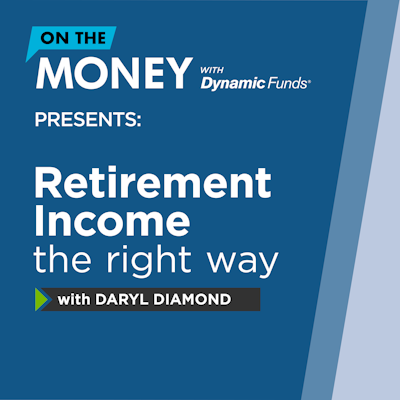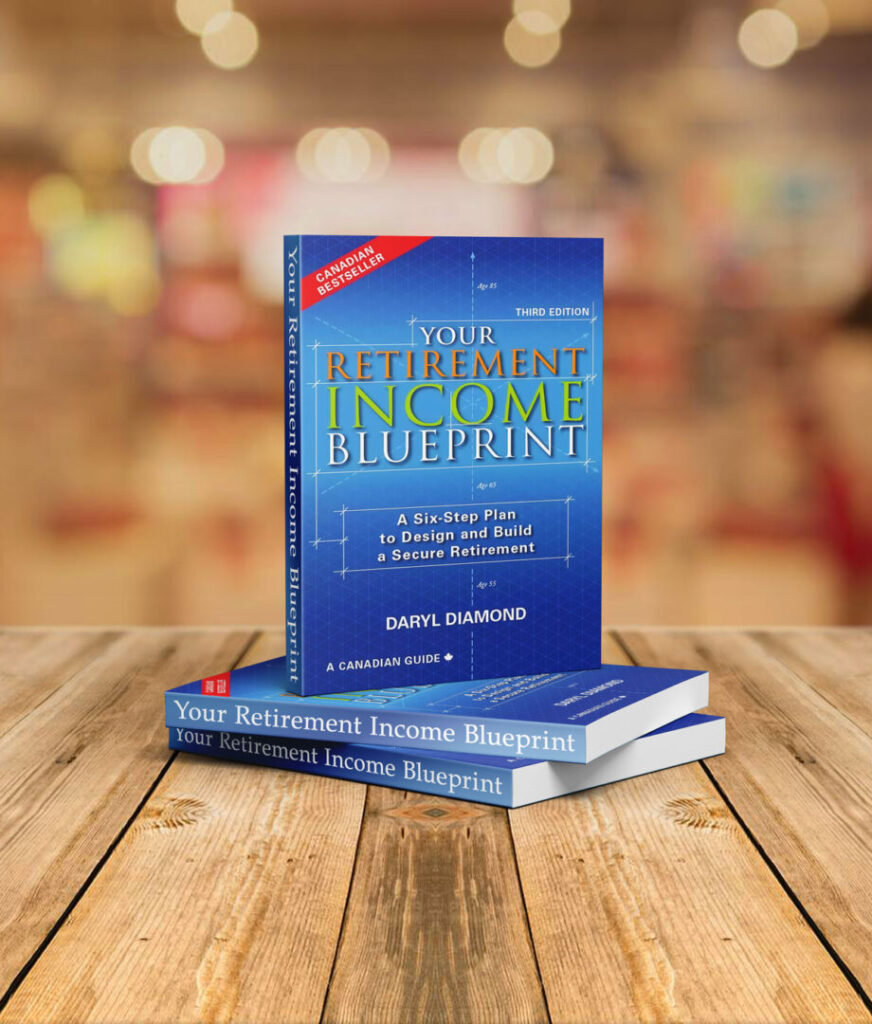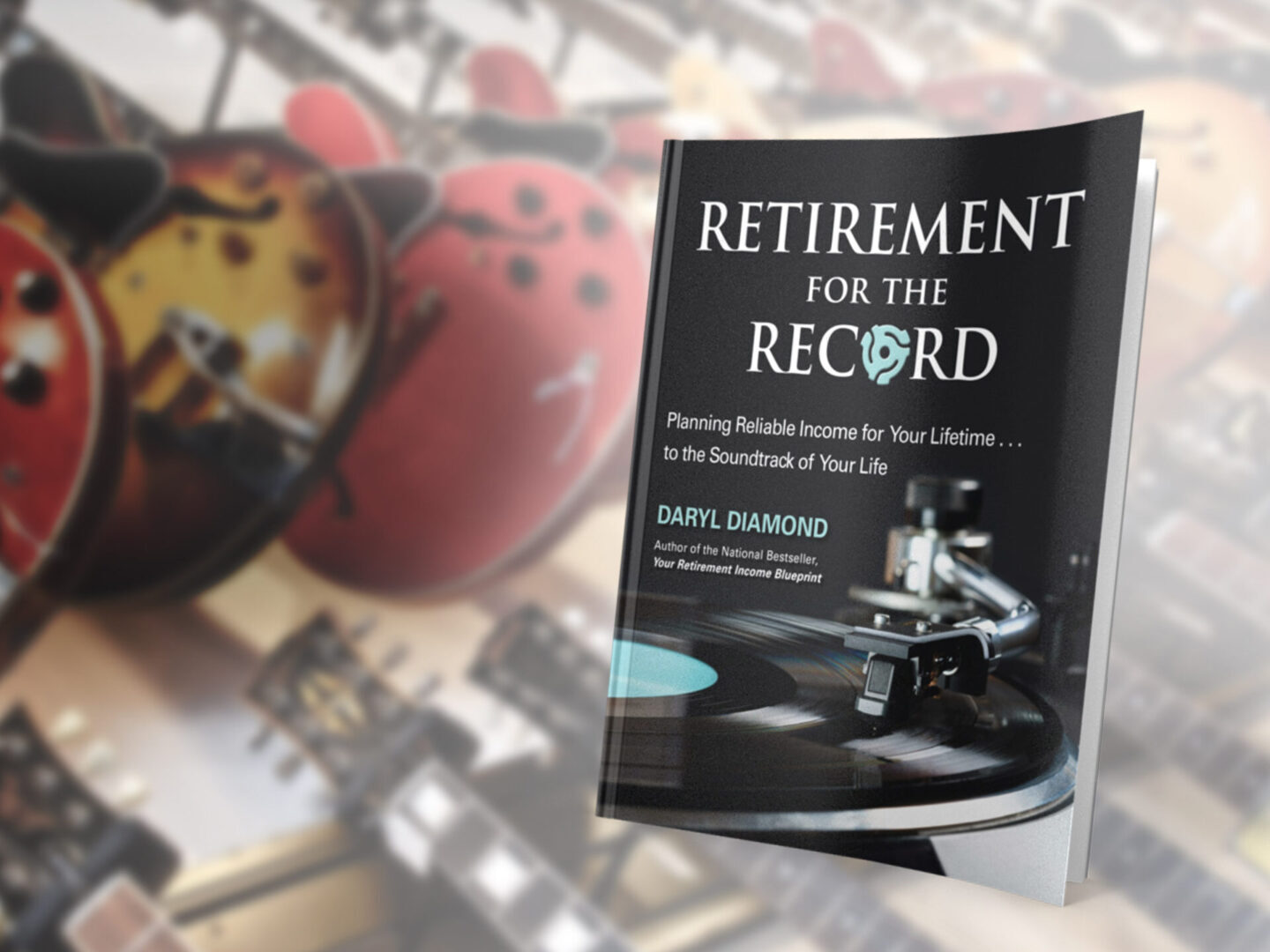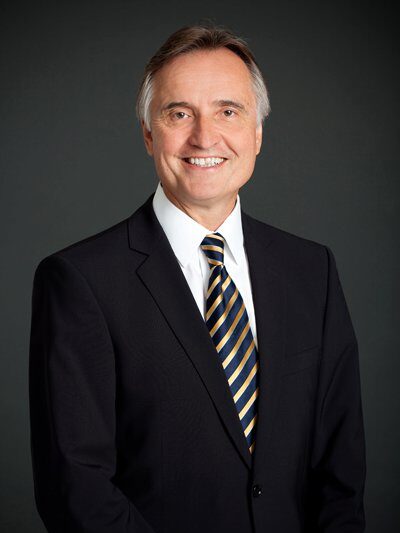
PODCAST
“The Playbook for Generating
Sustainable Yield”
Dynamic Funds ‘On the Money’ Podcast
April 2024
with Oscar Belaiche
Senior Vice-President and Portfolio Manager and
Daryl Diamond
Chief Retirement Income Strategist
Listen to the podcast — read the transcript
Your Retirement Income Blueprint
3rd Edition – by Daryl Diamond
This is the Canadian go-to guide for creating sustainable income in retirement
from the assets you’ve taken a lifetime to accumulate.
If you are approaching the end of your working life, or are recently retired, you can build a financially secure retirement with proven Blueprint Strategies to help you put your income plan together efficiently and with confidence.
A Canadian Best Seller
(download the Blueprint planning forms HERE)


Retirement For The Record
Retirement for the Record
is a unique companion piece to Your Retirement Income Blueprint.
A memoir compiled from more than thirty years as a retirement income strategist,
with client stories and experiences which put the Blueprint planning strategies
into real-life perspective.
Forty-six short, technically-topical chapters, sprinkled liberally with musical references,
notable quotes and fascinating tales from the iconic era of music which was
the soundtrack to the Boomers’ lives.
Retirement income planning made entertaining. If you loved the music, you’ll love this book.

About the Author
Daryl Diamond packs a big punch when imparting information on retirement income planning. As a known expert in his field, and after more than 30 years as an advisor working directly with retirees and pre-retirees to construct and deliver efficient, sustainable retirement income plans, he is pleased to be partnering with Dynamic Funds to share his knowledge through his role as Chief Retirement Income Strategist.
Listen in…podcasts and transcripts
PICKING THE RIGHT INVESTMENTS FOR YOUR RETIREMENT PORTFOLIO
Dynamic Funds podcast
January 2024
RETIREMENT INCOME UNPACKED: THE PAYCHEQUE PORTFOLIOTM APPROACH
Dynamic Funds podcast
November 2023
CRAFTING YOUR RETIREMENT INCOME MASTER PLAN
Dynamic Funds podcast
July 2023
Contact
Phone: 204-949-4749
Email:
Strategies and Resources
The Fixed-Payout Strategy — cash flow and capital preservation
When the time comes for investors to start taking income from their retirement assets, a common approach is to create these payments through a Systematic…
The Benefits of Consolidation
Typically, we did not meet our clients until they were retired or were seriously considering a date to retire. It was common for them to…
The Cash Wedge© Strategy
Manage Your Retirement Income with The Cash Wedge©Investing in the stock and bond market can certainly help grow your portfolio for the future, but market…
5 Basic Retirement Income Planning Tips
At retirement, it is natural to feel somewhat unsettled as you transition from ‘getting a paycheque’ to drawing down on your savings. While investment outcomes…
6 Steps to Success
The key to a rewarding and fulfilling retirement is making the best use of your time, your health and the financial assets you have taken…

